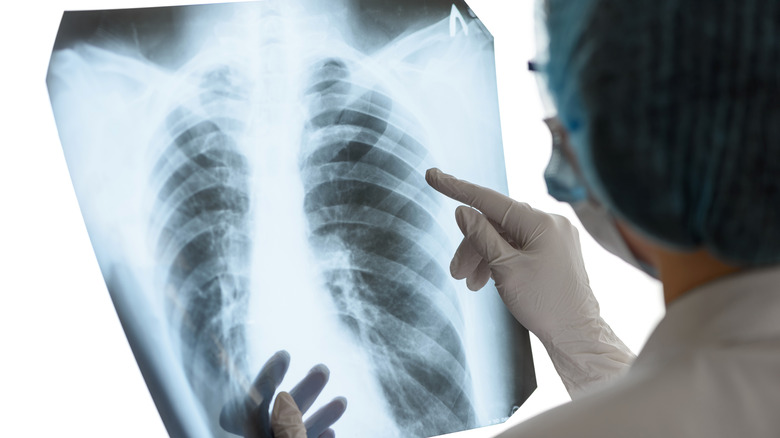What Is A Normal Respiratory Rate?
We don't always think about our breathing on a normal day, but this automatic function is obviously necessary to survival. The measurements of our bodies' automatic functions are called vital signs, and according to The Joint Commission Journal on Quality and Patient Safety, our breathing rate is potentially the most important one of all.
Vital signs are measurements of how well our bodies are performing necessary functions, like breathing and pumping blood (via Johns Hopkins Medicine). If a vital sign is abnormal, it may indicate that something is wrong. The four principal vital signs are body temperature, pulse rate, blood pressure, and respiratory rate.
Respiratory rate is the number of breaths we take in a minute when our bodies are at rest, according to Healthline. You can measure this by setting a timer for one minute and counting how many times your chest rises. In adults, a healthy respiratory rate is 12-20 breaths per minute.
What affects respiratory rate and what can it mean?
The number of breaths we take can be affected by a number of things and can indicate underlying conditions, according to Healthline. Factors that can influence our respiratory rate include emotional distress, physical fitness, body temperature, and health status.
When our respiratory rate is too low, it means we're not taking enough breaths for our bodies to function properly, indicating central nervous system dysfunction. This can be due to alcohol and drug consumption, hypothyroidism, sleep apnea, brain injuries, or stroke (via Healthline). On the other end of the spectrum, a high respiratory rate can be caused by fever, dehydration, asthma and other lung conditions, heart conditions, infections, or panic attacks.
While respiratory rates can vary depending on age and activity level, if it's abnormally high or low for an extended period of time it may be cause for concern (via Medical News Today). Contact your medical provider if your respiratory rate is abnormal and you have signs of infection such as fever or if you have a lung disease like asthma.


